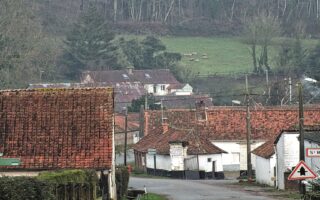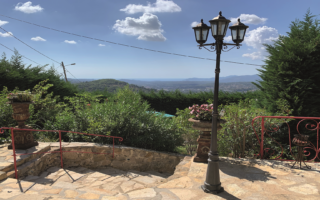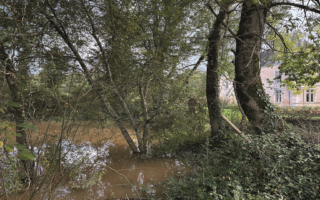Make room for a view
Andy Duncan discovers how, with good preparation and research, househunting in France can be a stress-free start to living the dream
Finding a property in Britain can seem a daunting enough task, and, with the cultural differences, getting that dream home en France can seem even more so. But it needn’t be. With thorough planning and an understanding of how things are done in the French property market, a viewing trip to France needn’t be a stressful battle against logistics, language and long distances, but the exact point at which your French dream begins.
Different strokes
Before going out to France and trying to arrange viewings with agents on spec, it is vital to know how the French immobilier modus operandi differ from those of British estate agents. Perhaps the most significant difference is the pre-eminence of the appointments-based system.
There is a very strong likelihood, should you knock on the door of an immobilier in your desired area, that the office will be locked and the agent will be out on a pre-arranged viewing.
French agents immobiliers work with appointments for various reasons, not least of which is the fact that, as agents don’t often have sole agency’ to the marketing of a particular property, they won’t have the keys. So they need to arrange to meet the vendor at the property so they can let the clients in.
Also, as Matthieu Cany, of Sextant Properties, elaborates: “Property viewings are done on appointments because customers have often made a long journey to meet the agents in France. If they do not make an appointment, the agent might be busy with other customers, on the road showing properties or meeting with property sellers.”
“The upside,” to the appointments system, says Cally Worden, of Bacchus French Property, “is that when we do see you, you can be sure of our undivided attention!”
Another thing to consider is that there are different public holidays in France so avoid these if you want to maximise the time you spend viewing on the trip. Of course, a public holiday might also be a good excuse for you to take a break, or to explore the area further.
And don’t forget, when making your appointments, that the norm in France is for a two-hour lunch break. An agent is more likely to agree to appointments in the morning or further on in the afternoon than in the middle of the day. While this may seem frustrating, Anne Mizrachi, of Latitudes French Property Agents, points out: “This is the way it is in France, and one of the many reasons British people want to have a holiday or main residence in France is to enjoy this quality of life.”
You will also find that you will be frustrated in your requests to have the property address before the viewing; preventing you from doing a drive-by’. As mentioned earlier, immobiliers don’t often have sole agency agreements with vendors, so several agents can be marketing the same house. Therefore, agents can put a lot of effort into marketing a property, only to have it sold by another agent.
Many agents are self-employed, so it is understandable that they would be protective of the potential business that may come from a property. As Patricia Penny, of JB French Houses, says: “Clients can always ask questions to make sure that the property meets their requirements.”
A positive side-effect is that the agent and property-hunters will often travel in the same car to viewings; this is a chance to find out more about the area from the agent, in whose best interests it is to act as tour guide on the journey.
A briefed encounter?
It may sound obvious, but avoid the pitfalls of going to view properties in an area about which you know little, and about which your fondness has formed due to, say, a certain book written about a certain year in a certain place.
It is important to research or know the area beforehand. There’s no point going out to an area if your knowledge of it is limited. Patricia Penny says: “A lot of our clients make a trip to check out areas to see what they like before they go on any serious viewings.”
It is also important to think holistically about the location you choose. Just because you like the idea of country life, being embedded in a bucolic idyll may prove to be fraught with unforeseen complications a few months in.
Anne Mizrachi cites such important considerations as the type of property you are after (old or new, detached, village house or rural, rustic, elegant, farmhouse…); the minimum amount of land required; the number of bedrooms and if any bedrooms are needed on the ground floor; how much work is required to the house and the land; how accessible the shops are; if you need a school nearby; and is it near airports, ferry ports or stations?
From this, you are then able to give the immobiliers a brief. The general consensus among immobiliers is that a brief is vital. JB French Houses has a criteria form that it sends out to each client and then forwards to French agents ahead of appointments, while Sextant has a list of 30 questions for customers, usually spending
10 minutes on the phone with each of them so as to understand their requirements.
However, Cally Worden adds a word of caution. “A brief is useful,” she says, “but it can also be constraining. Often clients don’t know themselves what they are seeking and a brief that is too tight in advance of your trip means you can miss out on things. I would always ask for essentials, from which an initial selection of properties can be considered. Provided a client can provide feedback on these, we often get a very clear picture of what’s required.
“Keep an open mind – client briefs often change, and a good agent will amend your viewing schedule based on your reactions to various properties. I often find clients will buy one of the last properties I show them, because we’ve worked together to narrow down the possibilities as part of the viewing process.”
Be realistic
Another common pitfall is trying to cram too much in. It is easily done. You may have taken a precious week off work, and paid to come out to France to visit properties, but pace yourself, or you won’t get the most value out of your trip.
First, remember that France is a big country. Looking at a map, it is easy to overestimate the amount of ground you can cover in a day as you strive to maximise your time. It is really important not to choose too big a search area. Choose a small area first – your perfect location – and if you can’t find what you want here, explore another.
Similarly, don’t try to squeeze too many viewings into a day. “I’m always amazed that when buyers come over, they normally come for a week and want to view as many properties as they can on the same day,” says Emma Clancy, of French Property Connections. “One client looked at seven on one day, which is crazy. By the end of the week they will go back to the UK exhausted.”
With such information overload, it is also easy to forget details about certain properties, or you find that they all blur into one. Cally Worden suggests that, however many properties you see, it is important to take notes about, and photographs of, each property so that you have your thoughts in order when you review what you have seen.
What’s more, you won’t be able to look round a house and its area properly, and ask all the right questions if you have one eye on the clock, knowing you have another appointment in an hour. As Matthieu Cany points out: “In a rush, you can’t have a proper look at a property and you might miss a problem related to, say, the construction of the building, the distance to the shops and so on.” Matthieu goes on to recommend a daily limit of four, which also gives the agent the possibility of adding more that match your criteria.
Also, as Anne Mizrachi says: “You can change the look of a house but not its location.” As already discussed, researching an area before you decide to look for properties is very useful, but nothing beats first-hand experience of the place in which you’re planning to buy.
This is another reason why it is important not to squeeze in as many viewings as possible on your trip. Emma Clancy says that this means clients “don’t give themselves enough time to look around the area and take in the surroundings.”
Cally Worden recommends leaving a couple of days at the end of the trip to revisit some of the properties.
Etiquette
No matter how organised you are on your trip, a basic faux pas could put the kibosh on you clinching your dream home. While hardly as regimented as a royal visit, there are a few matters of etiquette to be observed.
Arguably, the most important of these is punctuality. “I cannot stress this enough,” says an emphatic Cally Worden. “Your agent will have booked time out especially for you.” Many agents are self-employed. If they have an appointment with you, they are not seeing anybody else and, if they are meeting you away from their office, they can’t do any other business while waiting. Also, the vendors may have taken the day off to be present for the viewing.
Lateness cannot always be avoided but a courtesy call is appreciated. Also, the agent might go and see their next client otherwise. And remember to allow yourself longer to get somewhere than you think you might need.
Friendliness towards the vendors can make or break a sale. Emma Clancy suggests that introducing yourself to the vendors with a handshake is always welcome, and says: “The only time I’ve cringed is when a buyer has said something derogatory about a house, not knowing that the vendor speaks English.” Cally Worden gives an example: “I had a client who, on entering the kitchen of a ramshackle old farmhouse, exclaimed to her husband that she’d seen cleaner public toilets, only to turn round and be face-to-face with the vendor… an English teacher at the local school. I busied myself in examining the fireplace.”
Having said that, clearly you should be very honest with your agent afterwards so that you can work together to refine your requirements.
And when you return from your trip, sending an email to thank your agent and to keep them posted regarding your hunt is always appreciated.
Finally, remember that this trip is the first stage of living your French dream, so relax and enjoy it.
Share to: Facebook Twitter LinkedIn Email


